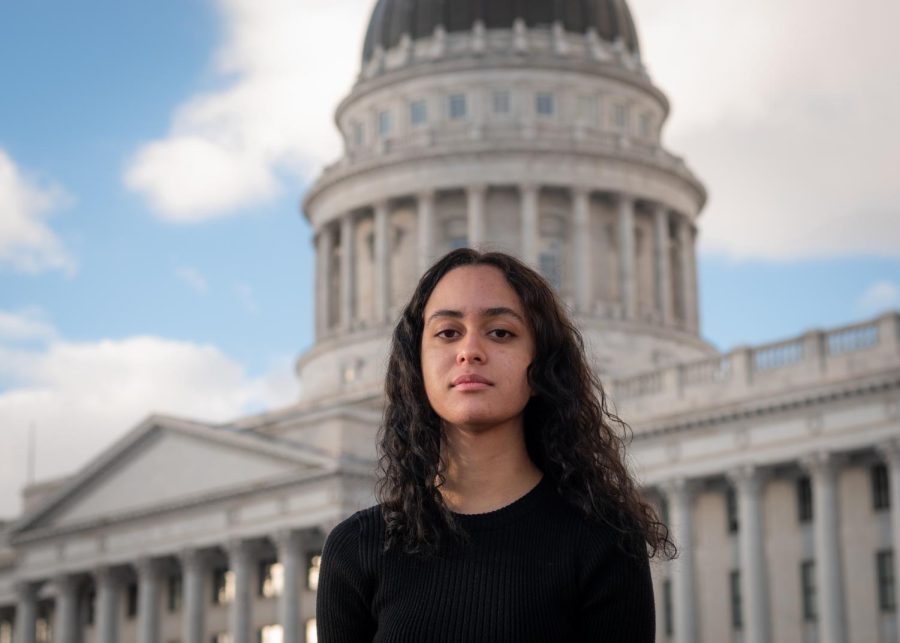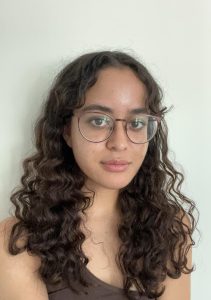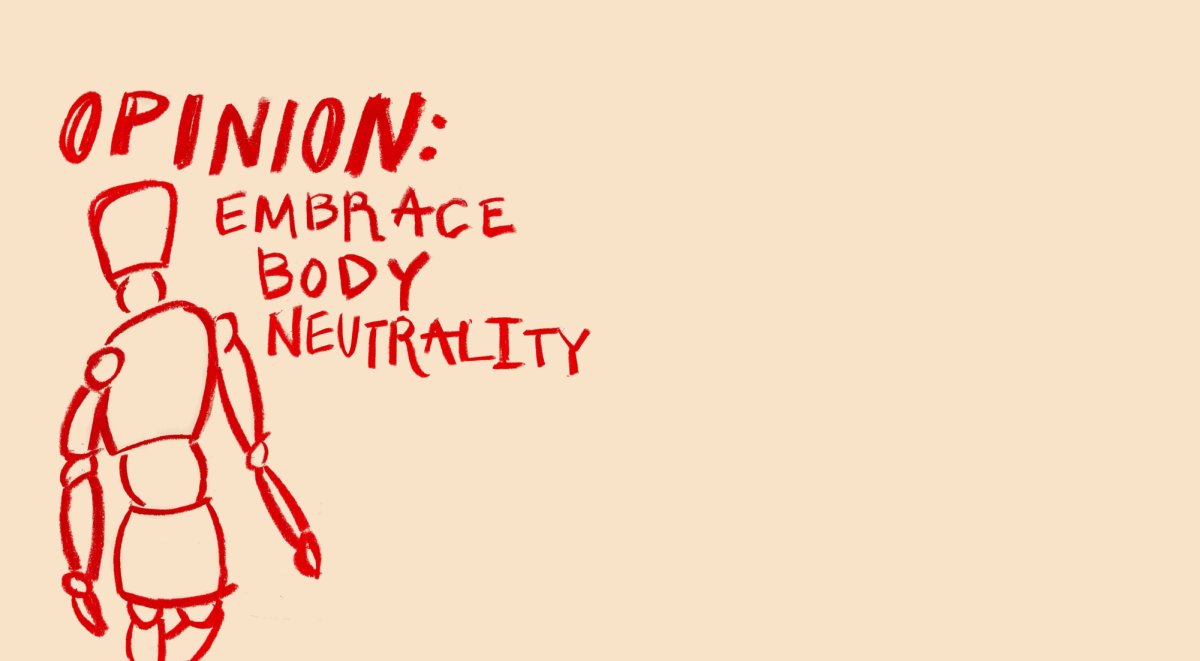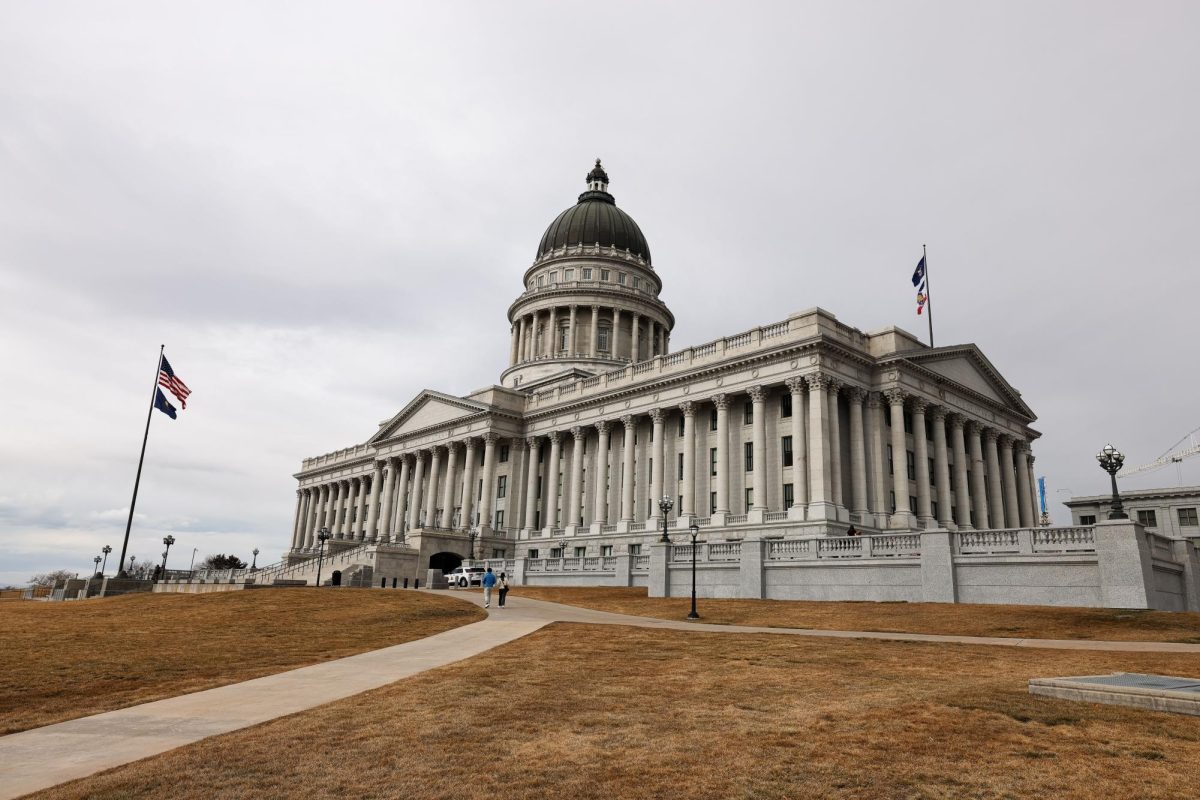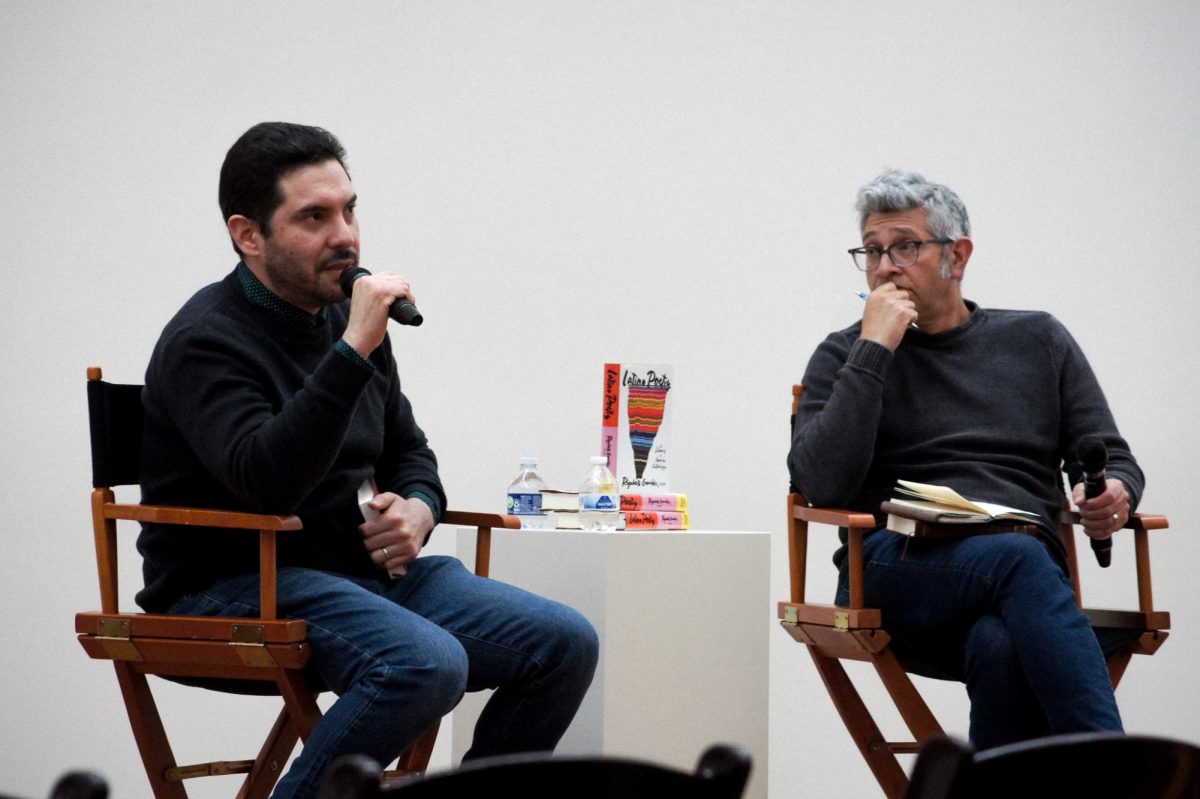Alexander: Opinion Writing Changed Me for the Better
Opinion writer Camden Alexander stands in front of the Utah State Capitol on Dec. 10, 2021, in Salt Lake City. (Photo by Jack Gambassi | The Daily Utah Chronicle)
February 4, 2022
This marks my 51st op-ed, which blows my mind considering I never saw myself writing for The Daily Utah Chronicle. But I’m incredibly grateful to my supportive editors and peers for teaching me so much about myself and writing. My time at The Chronicle has been nothing short of valuable.
I’ve gained incredible skills, broadened my horizons and honed my strengths as a writer. I can conduct effective interviews and understand legislative jargon. I know a lot more about the legal and political spheres. My writing has never been better, although there’s always room for improvement. I’ve learned that opinion writing is incredibly hard and not for everyone. But for anyone interested in writing op-eds and with a willingness to learn, here are my takeaways as an opinion writer and the practices I use daily.
The most convincing writers engage in meaningful practices to build compelling arguments. They expand their media intake to incorporate a wide variety of political views and diminish their own biases. I know that when I first started writing, my beliefs and ambitions were naïve, some almost surface level. But my editor encouraged me to read newsletters from the Washington Post, the New York Times and The Atlantic. Consuming more media helps to stay on top of important issues and learn from experienced journalists. Good opinion writers also ingest local news to stay up to date with what’s going on around them. I keep up with the Salt Lake Tribune and the Deseret News, but I also subscribe to the Utah Policy newsletter to keep an eye on Capitol Hill.
Another practice the best writers employ is picking a niche and leaning into it. A few of The Chronicle’s very own opinion writers have explored and found their niches, and their writing speaks for itself because they dedicate so much time, effort and emotion to the topics that matter to them. I write about policing, racial issues and my job as a server because I care about them and they impact me directly. Writers who find their niche topic can contribute to a more knowledgeable and complex conversation.
Opinion writers also gain crucial skills and experiences that are applicable in any career field. I’ve learned how to distinguish credible arguments from baseless opinions within the media, which is incredibly useful in forming educated beliefs about the world.
I’ve also interviewed legislators, doctors, students and professors to apply their diverse perspectives to my pieces, which builds communication skills and strengthens writing. I’m very proud of all my interviews, as I’ve had the privilege to interview a police chief, a representative and even a paleontologist. But my favorite interview by far was with University of Utah’s Dr. Edmund Fong for my piece “Real Patriotism is Critiquing Our Nation.”
Like a few of my other interviews, I learned that Dr. Fong and I had a lot of views and experiences in common, and I felt validated talking with him. However, not all of my interviews have been as smooth or as satisfying. I’ve made some mistakes with a few of my interviewees, like asking questions that left me with more questions rather than answers. But through trial and error, I’ve learned what questions to ask and how to ask them to get the most out of my interviews.
As an opinion writer, I’ve had opportunities arise and connections with leaders form out of recognition. After writing my “Utah Fails Women in Legal Careers,” a Utah judge contacted me to praise my writing and encourage my ambitions, saying he was “excited” for what I would do in the future. I was also invited to participate in an Equity, Diversity and Inclusion panel after writing passionately about critical race theory.
Writing opinion pieces also allows me to develop my skills and sincerely practice being a better writer. I’ve learned the specifics of AP style and different styles of writing. Co-authoring pieces with other writers has helped me practice my collaboration and communication skills. And I’m still learning how to capture readers’ attention with grabby headlines. If I previously knew what I would come to learn and accomplish as a writer, I would have started long ago, because the skills I’ve obtained are invaluable for my future goals.
The last thing I want to impress upon future writers, specifically opinion writers, is to remember that writing op-eds takes guts. Not everyone can articulate their opinions thoughtfully and informatively. Of those who can, most are not willing to share their opinions outright like opinion writers. We are brave enough to put our names on our pieces and stick up for our beliefs, even if people disagree with them. And our pieces are just that: opinions. Opinion pieces are not fact, but they are built upon facts, research and other expert opinions. Through opinion pieces, we can criticize the world around us and write about it with devotion.
For any future student journalists or opinion writers, please trust in yourself. Trust in your writing and your ability to grow. Because you are the future of journalism, the nation and the world. I trust that you can do a better job than those who came before us. Through opinion writing, you can create change.


